No products in the cart.
Return To ShopBudget-Friendly Weight Gain Meal Prep: Easy Recipes
When it comes to gaining weight in a healthy and sustainable way, meal prepping can be an invaluable tool. In this article, we’ll explore how you can bulk up on a budget by preparing meals in advance that are both nutritious and affordable.
Gaining weight, especially in a healthy way, can be just as challenging as losing it. However, meal prep provides an efficient and cost-effective way to ensure that you are consuming enough high-calorie meals that support your weight gain goals. Meal prepping not only helps you avoid the temptation of unhealthy fast food options but also helps you save both time and money while ensuring you have access to nutrient-dense meals at all times.
Understanding the Basics of Weight Gain Meal Prep
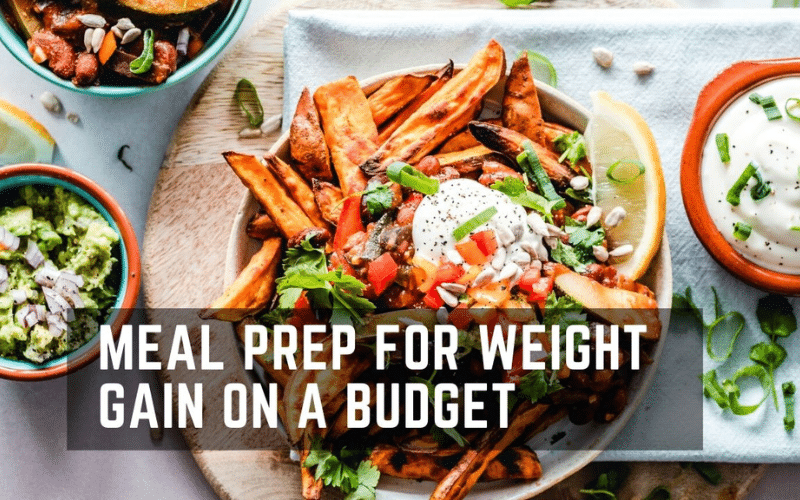
Before diving into meal prep recipes and tips, it’s important to understand the fundamentals of weight gain meal prep.
Meal prep for weight gain refers to planning and preparing meals ahead of time with a focus on nutrient-dense foods that will help you consume more calories and promote muscle growth. It’s not just about eating more, but eating smarter, ensuring that you’re fueling your body with the right balance of macronutrients.
Meal prep plays a key role in ensuring consistency. When meals are pre-prepared, you eliminate the risk of skipping meals or eating foods that don’t align with your goals. The main nutrients to focus on include proteins for muscle repair, carbohydrates for energy, and healthy fats for additional calories. All of these nutrients will work together to support your weight gain journey.
Setting a Budget for Weight Gain Meal Prep
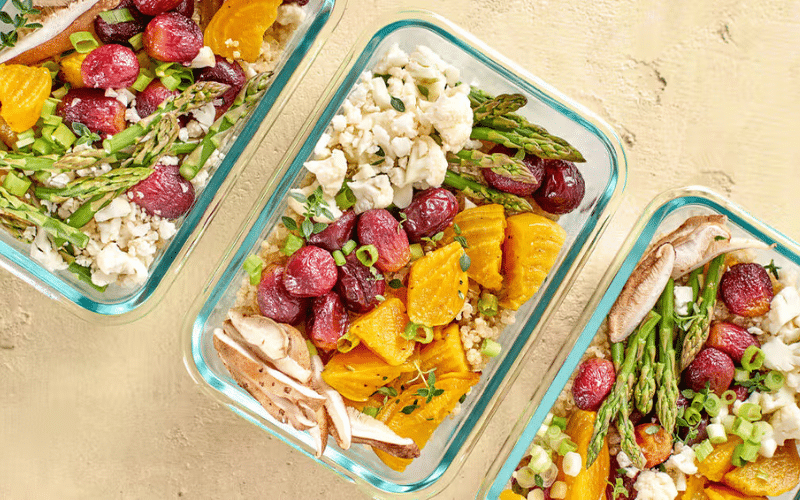
Meal prepping doesn’t have to break the bank. In fact, it can save you money in the long run by allowing you to plan meals, avoid impulse buys, and minimize food waste.
The first step to meal prepping on a budget is setting a weekly or monthly food budget. This helps you stay on track while ensuring that you’re not overspending. One of the key ways to keep costs down is by shopping smart—look for sales, use coupons, and buy in bulk when possible.
It’s also important to calculate the cost per meal to understand exactly how much you’re spending. By tracking expenses, you can make necessary adjustments and identify areas where you can save. Whether it’s substituting expensive ingredients with more affordable options or planning meals around what’s on sale, budgeting your meals effectively ensures that weight gain doesn’t come at a steep cost.
Top Affordable Ingredients for Weight Gain Meal Prep
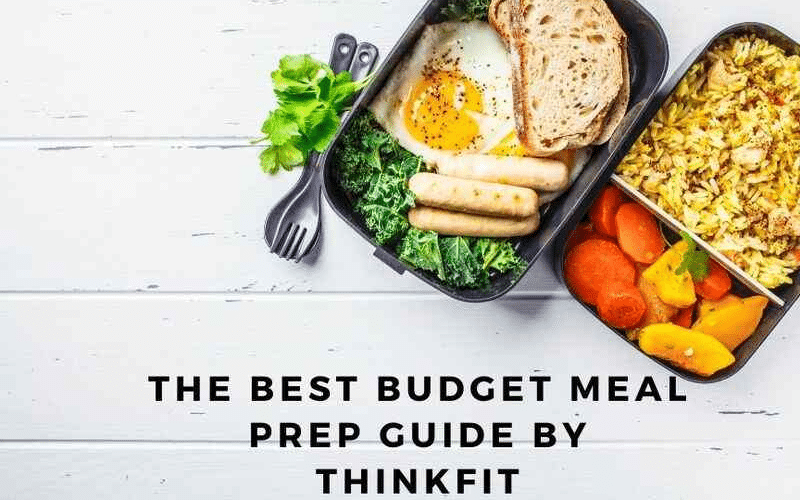
Choosing the right ingredients is crucial for both weight gain and sticking to a budget. There are several high-calorie, nutrient-dense foods that won’t break the bank and are perfect for meal prepping.
- Grains like rice and oats are inexpensive and serve as excellent calorie-dense base ingredients. They are also incredibly versatile, whether you’re using them in savory dishes or smoothies. Peanut butter is another budget-friendly food that’s packed with healthy fats and protein, making it an ideal option for calorie-dense snacks or additions to meals.
- Eggs are a great source of affordable protein, and purchasing them in bulk often leads to savings. Chicken is another excellent protein source that can be bought in bulk, especially when opting for cuts like thighs or drumsticks, which are typically cheaper than breasts.
- Legumes such as lentils and beans are not only cost-effective but are also rich in protein and fiber. When buying in bulk or opting for canned versions, these ingredients can stretch over multiple meals. Frozen vegetables are another great option—often cheaper than fresh and still packed with nutrients.
Easy and Budget-Friendly Weight Gain Meal Prep Recipes
Meal prep for weight gain doesn’t need to be complicated. Here are some simple, affordable, and nutrient-packed meal ideas to get you started.
- For breakfast, smoothies are a quick and customizable way to pack in calories. Start with oats, a banana, and a tablespoon of peanut butter for a delicious, calorie-dense drink. Overnight oats can also be a perfect breakfast option, providing a filling, high-calorie start to your day. Simply combine oats, milk or yogurt, chia seeds, and fruits, and refrigerate overnight.
- For lunch and dinner, rice and beans are inexpensive and filling. Pair them with chicken or lentils for a protein-packed meal. Lentil curries are also a great budget-friendly option, and they can be easily made in large batches and frozen for later use. Serve them with rice for a well-rounded meal.
When it comes to snacks, nut butter spreads on whole grain bread make for a quick, calorie-dense option. Homemade protein bars are easy to make using oats, peanut butter, honey, and protein powder, and they provide a convenient snack between meals. Granola is another easy-to-make, high-calorie snack that can be enjoyed throughout the week.
How to Organize and Store Your Meal Prep Efficiently
Once your meals are prepped, it’s crucial to store them correctly to maintain freshness and prevent waste. The right storage method can also help you keep your meals organized, making it easier to stick to your meal prep routine.
- Use airtight containers to store your prepped meals to ensure they stay fresh for a longer period.
- Labeling each container with the preparation date will help you track the freshness of your meals and ensure you’re consuming them within the optimal timeframe.
- When it comes to portion control, try using specific containers designed for meal prep.
- These containers can help you measure out servings, preventing overeating or unnecessary food waste.
- Having your meals portioned out also helps you stay on track with your caloric goals.
Common Mistakes to Avoid When Meal Prepping for Weight Gain
While meal prep is a great strategy, there are some common pitfalls that can sabotage your efforts if you’re not careful.
A major mistake is underestimating portion sizes. It’s important to ensure that you’re eating enough food to achieve a calorie surplus. Many people make the mistake of preparing meals that are too small, which can hinder weight gain efforts.
Additionally, don’t forget to balance your macronutrients. Focusing only on protein or carbs can lead to imbalanced meals. The key to healthy weight gain is a proper balance of protein, fats, and carbs. A well-rounded diet ensures that you’re not only gaining weight but also building lean muscle mass.
Frequently Asked Questions (FAQs)
Can meal prepping help me gain weight faster?
Yes, meal prepping ensures that you have high-calorie meals ready at all times, which is crucial for a consistent calorie surplus.
How many calories should I aim for in each meal?
Aim for meals that provide around 500-700 calories each, depending on your total daily calorie goal. The key is consistency throughout the day.
How long can meal preps last in the fridge or freezer?
Most meal preps last 3-4 days in the fridge and up to 3 months in the freezer. Be sure to check for freshness before consuming.
Conclusion
By following these tips and recipes, you can successfully meet your weight gain goals while sticking to a budget. Meal prep not only saves you time and money but also ensures you’re consistently consuming the right balance of nutrients to promote healthy weight gain.

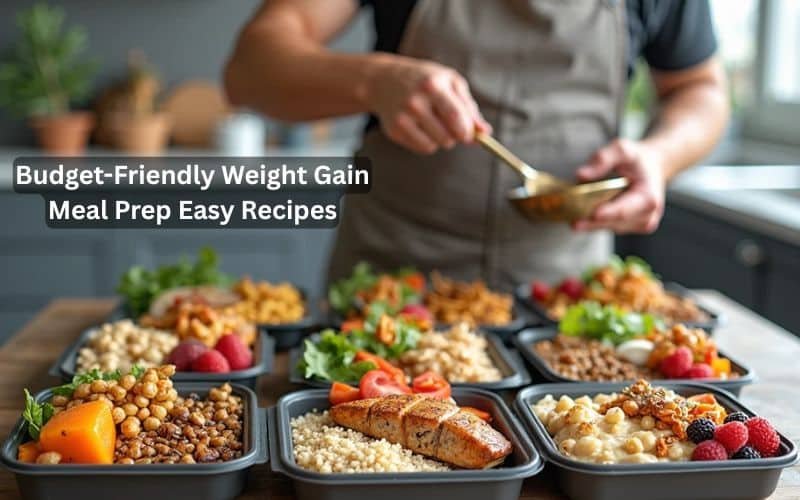




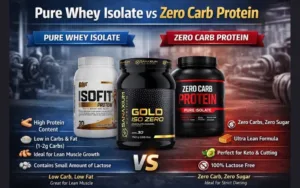


Add comment